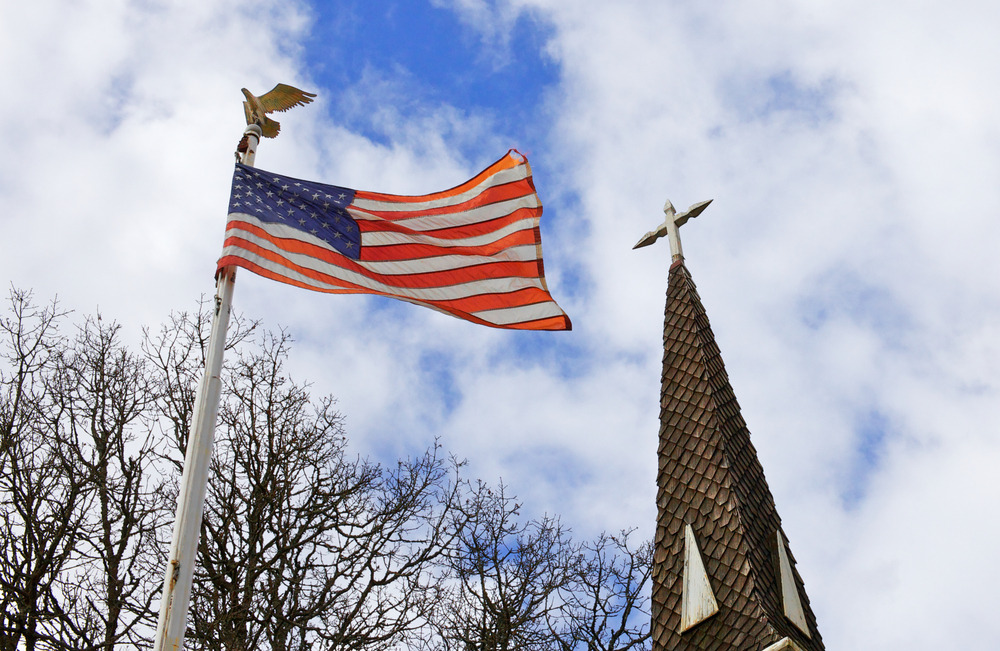The 20th century was an outlier in the history of the human race. For the first time, secularizing movements spanned the globe. In many places, they succeeded by suppressing the political expression of religion. The great religions lost their capacity to direct culture and society.
The 21st century is a return to form. New religious movements hostile to liberal political ideology have been revived around the globe. Islamism was first to the plate, beginning in the late 20th century. Today the Hindu nationalists have joined the Islamists. Even anti-liberal Christianity has seen a political revival. This is especially true of Catholicism in Central Europe and Orthodoxy in Russia.
These movements have spawned new generations of intellectuals. While liberals fear these movements, anti-liberals have made political thought fresh. The energy of political theory has moved outside the academy. New books are of greater interest than the Nth iteration of Rawlsianism. And I say that as someone who writes on Rawls!
With his new book, Conservatism and Grace: The Conservative Case for Religion by Establishment, Sebastian Morello joins the ranks of the new Catholic anti-liberals. He encourages the right to embrace a positive, if extreme, Christian political agenda. He aims at nothing less than the robust establishment of the Christian religion.
Morello is a leading student of Roger Scruton, the great conservative intellectual. Morello’s book and public engagement show great love for his teacher. And yet Conservatism and Grace begins with a detailed critique of Scruton’s views on religion and politics. To begin with, Scruton was not a Christian. He thought religion had social value owing to its natural goodness, not its truth. Indeed, Scruton favored a mild form of privatization of religion stricter than many liberals. Morello challenges Scruton on this: conservatism cannot abandon its traditional association with religion. Not without collapse.
I found this chapter persuasive. While I am a liberal, I have always rejected the privatization of religion. I have never understood the impulse. We can protect society from oppression without browbeating people of faith into abandoning the public square altogether.
The next two chapters are particularly striking. Most people contrast Edmund Burke and Joseph de Maistre. They defended conflicting forms of conservatism, right? Burke favored limited government and careful reform. Maistre was a counter-revolutionary so eager to restore throne and altar that he was almost no conservative at all. Burke is deep and benign. Maistre is dangerous, violent, even terrifying.
Morello will have none of this. Burke and Maistre shared a Christian foundation for their conservatism. Indeed, they even had integralist sympathies. Morello uses these shared commitments to push Burke and Maistre closer together. Burke and Maistre scholars may be skeptical. Can we blend these thinkers by merely blending their anti-secularism? I am not expert enough to say. Nevertheless, I learned a tremendous amount about both Burke and Maistre. And Morello’s attempt to push them together presses us to explain why we must contrast them.
The final chapter is both creative and underdeveloped. As noted, Morello is a rich and charitable reader of the conservative tradition. Yet almost every claim he makes about the liberal tradition is false. Liberalism is not contractarian. Nor is it neutralist. Nor does it have a pre-social conception of the person. The liberal tradition features a host of utilitarian thinkers skeptical of contractarianism. Most liberals have not been neutralists. And thinkers from Mill through Rawls have sought to rescue liberalism from atomism. Morello might have supported his claims with proper citations. Yet he fails to cite the work of a single liberal in this chapter. To defend religion by establishment, why not discuss what liberals have said about it? Why refuse to engage liberalism at all?
Worse, Morello does not define “establishment.” He gives no hint as to the range of acceptable mixtures of church and state. Morello says he wants to avoid getting in the weeds of law and policy. Fair enough. But he owes his reader at least a sketch of good establishmentarian regimes. This book bills itself as the conservative case for establishment. It is not that.
All the same, Morello’s foundation for conservatism is profound and unique. He does not appeal to a simple doctrine of natural and eternal law. Nor does he ground conservatism in tradition and sentiment. Instead, Morello defends a Catholic politics based on an interpersonal or “second-personal” union with God. To love and be loved by God requires entering into an intimate relationship with Him. This loving “I-Thou” union turns humans into true persons because personhood entails relationships with others.
Morello then suggests that what holds for persons also holds for larger groups. Indeed, whole nations can organize themselves to pursue such a union. Conservatism rests on the glorious possibility of a nation united with God in love. This case for religion by establishment is the most inspiring I have encountered, if implausible.
To see why, notice that Morello’s case has an odd omission. Second-personal approaches to moral and political philosophy are common. And they almost always go in a different direction than does Morello. Theorists wield them to defend contractualist ethical theory and liberal political philosophy. The famous contemporary defense of second-personal morality is Stephen Darwall’s The Second-Person Standpoint. There Darwall develops a similar Buberian foundation for moral and political philosophy. To preserve second-personal relationships, contractualists claim that the law must rest on norms all can accept. This is not a “transactional” social contract, the sort Morello bemoans. It is instead the rational unity of diverse persons in political life. This union establishes second-personal relationships among citizens.
Unlike Morello, Darwall focuses on a second-personal union with other human beings alone. For Morello, then, Darwall’s picture is incomplete. But Morello’s second-personalist foundation for conservatism cannot ignore second-personal liberalism, for second-personal liberalism claims we cannot unite with others through established religion. At least not in a society with significant religious pluralism. Morello commits himself to the claim that our love of God and love of neighbor are a unity, which means that an establishment of religion cannot both support our union with God and degrade our union with our diverse neighbors. Darwall has a second-personal account of the love of neighbor. Morello must tell us why Darwall and his allies are wrong.
The power in Morello’s defense is the need for a second-personal union with God. Politics must not only look at humans side-by-side; it must look up to God. The idea of a comprehensive second-personal political theology is deeply compelling, and one could conceivably weld Morello’s picture of union with God with Darwall’s picture of union with others. These twin commitments could yield a rich interpersonal liberalism and bypass Morello’s criticisms.
Morello’s second-personalism must also explain how to enter a second-personal union with non-Christians. Indeed, with non-Catholics. If we Christians coercively establish our religion, our union with non-Christians suffers. I have atheist friends I love from my soul. I cannot look them in the eye and propose that the state espouse my views over theirs. The state represents us all in our equal dignity, and I must respect that dignity. Maybe the state cannot be entirely neutral, but in the name of love, it must try.
The truth is that, as James Madison said, liberty is to faction as air is to fire. Reason does not lead to agreement, as the Enlightenment liberals believed. Instead, it splinters into a thousand diverse pieces. That means an organic conception of society needs an update. Social organisms produce diverse niches with diverse perspectives. The natural growth of society is into disagreement and difference. To establish religion, we must impose homogeneity on this social growth. The conservative state is supposed to tend its garden. It should not uproot the natural ecosystem. The natural social ecosystem, however, is multiform, and includes multiform beliefs.
Our second-personal union with God cannot require us to suppress this diversity. We cannot both love God and refuse to unite with those who reject our conception of God. Some establishments may filter through if society is already Christian. But in diverse orders, something more tolerant is required.
Conservatism and Grace is a striking innovation in conservative thought. In its depth, it exceeds all other contemporary Catholic anti-liberal thought. Save Thomas Pink, no one alive has explored the moral and theological foundations of religious conservatism with such insight. Not Adrian Vermeule or Patrick Deneen or Fr. Thomas Crean or Alan Fimister. That makes Morello’s defense disappointing. This is not a compelling conservative case for establishment. But another of Morello’s books might be. I heartily await that book.

